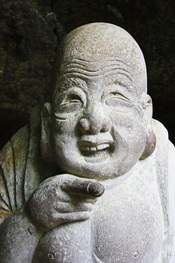Philosophy Essay Happiness is a very subjective emotion that human beings exhibit. There are a whole host of reasons and factors contributing to the happiness of a person. Philosopher John Kekes puts forward in his novel The Examined Life, "ÃÂthe simple view of happiness.' Simply stated, he believes that happiness is made up of a collection of episodes that form an attitude. The attitude in general is what Kekes is concerned with and what his argument flows from. I shall argue that the satisfaction of a want does indeed lead to happiness even if the happiness is short lived. I also hope to show that in order to achieve happiness one must, as Kekes suggests, be satisfied with ones life.
Kekes puts forward the premise that there is more to happiness then just a collection of happy events. He stresses that there is an overall attitude that one must achieve in order to say that a happy life is theirs.
He goes on to say, "the connection between satisfying episodes and an attitude of satisfaction with our lives is not simply that if we do and have what we want, then we are happy." I think the point that Kekes makes here is not valid. I would argue that if we do and have what we want we are in fact happy. I do not want to over simplify my justification for the position that I take but why would someone want something that wouldn't make him or her happy? Kekes has stated in his paper that it is a mistake to assume that the satisfaction of our wants assures happiness. I do not think that he is correct. If someone desires something, they are doing so because they think that specific desire will bring them some level of utility. The end result might not be favourable but the intent of the desire was to bring some form of happiness and the achievement of this desire does bring happiness. If Kekes on the other hand refined his statement and said that the satisfaction of wants does not necessarily lead to long lasting happiness then I would agree with him. The case of the miser below will illustrate this important point.
Kekes would, and has, countered my argument by stating the trials of a rich miser who ends up lonely and with a shriveled soul. I think that this rebuttal by Kekes is off the mark. In the case of the rich miser I do not think that the desire to become wealthy, and the resultant achievement of obtaining wealth, would cause any real trouble. The trouble that one in this situation might face would come because of other thoughtless actions that the person has let happen. It should be noted here that the problems I am referring to are large problems, (more socially significant) rather then not knowing where to store your money for instance.
The rich person does not experience bad fortune because they have become rich; I would argue that any misfortune would be caused by the actions of that person. The rich person might become flashy and get robbed, they might argue with family over loans, perhaps they blow their money in Las Vegas and become homeless as a result. The negative occurrences stated above do not directly come from the money or wealth. I would concede that money played a part in these damaging events in so far as to say that a lack of money would have made these new found troubles mute. But then again if the rich person was not born at all he would not have had the desire to become wealthy, both points are valid but uninteresting to my topic.
It is entirely possible that the person who desires a something does not have a valid reason. They might desire to blow up an air plane for instance.








